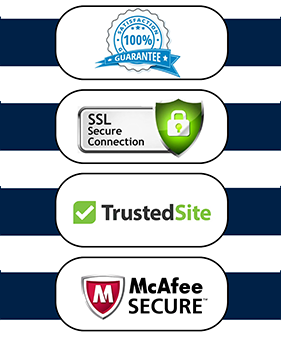
Eccouncil 212-89 Exam Dumps
- Exam Name: EC-Council Certified Incident Handler v3
- Certification Name: Eccouncil ECIH Certification
- Exam Code: 212-89
- Total Questions Provided: 168
- Last Updated: Apr 12, 2025




Eccouncil 212-89 Exam: Your Pathway to Cybersecurity Expertise
Technological and Domain Expertise
The Eccouncil 212-89 exam, also known as the Certified Incident Handler (ECIH) certification, focuses on equipping you with the essential skills and knowledge to effectively respond to and manage various types of cybersecurity incidents. To prepare for this exam, you'll need to demonstrate expertise in the following areas: Incident Response and Handling Process: Understanding the fundamental steps involved in incident response, from preparation and identification to containment, eradication, and recovery. First Response: Developing the ability to quickly assess and triage security incidents, ensuring immediate and appropriate actions are taken to mitigate the impact. Malware Incidents: Recognizing and responding to malware-related incidents, including the analysis of malware samples and the implementation of effective containment and remediation strategies. Email Security Incidents: Addressing security incidents related to email, such as phishing attacks, email-borne malware, and unauthorized access attempts. Network Level Incidents: Identifying and handling network-level security incidents, including unauthorized access, data breaches, and distributed denial-of-service (DDoS) attacks. Application Level Incidents: Recognizing and responding to security incidents at the application layer, such as web application vulnerabilities, SQL injection, and cross-site scripting (XSS) attacks. Cloud Security Incidents: Developing the skills to detect, investigate, and mitigate security incidents in cloud computing environments. Insider Threats: Understanding the dynamics of insider threats and implementing effective strategies to prevent, detect, and respond to such incidents. Endpoint Security Incidents: Addressing security incidents related to endpoints, such as compromised user devices, unauthorized access, and data exfiltration.
Career Benefits and Job Opportunities
Earning the Eccouncil 212-89 (ECIH) certification can significantly boost your career in the field of cybersecurity. As a Certified Incident Handler, you'll be equipped with the necessary skills to play a crucial role in protecting organizations from the ever-evolving threat landscape. Some of the potential job roles and career benefits include: Incident Response Specialist: You'll be able to join organizations as a dedicated incident response professional, responsible for investigating, containing, and resolving security incidents. Cybersecurity Analyst: Your incident handling expertise will make you a valuable asset in analyzing security data, identifying threats, and implementing effective countermeasures. Security Operations Center (SOC) Analyst: You'll be well-positioned to work in a SOC, monitoring and responding to security alerts, and coordinating incident response efforts. Cybersecurity Consultant: With your specialized knowledge, you can provide valuable consulting services to organizations, helping them enhance their incident response capabilities and overall security posture. Information Security Manager: The Eccouncil 212-89 certification can also pave the way for leadership roles in information security, where you'll be responsible for developing and implementing comprehensive security strategies.

Currently there are no comments in this discussion, be the first to comment!